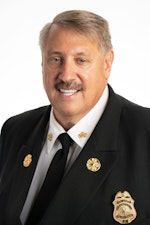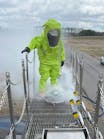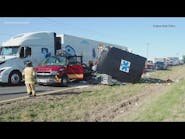This is not an easy subject to write about. Throughout my 33-year fire-EMS career, I have seen too many of my brother and sister firefighters and paramedics commit suicide. Maybe someone you worked with committed suicide. It happened in St. Louis more than once during my 25-year career there and it has happened more than once in my 5½ years working for the Memphis Fire Department. Besides St. Louis and Memphis, I hear from my colleagues about firefighter and paramedic suicides from around the country.
Those who are left behind try to figure out what drove the person to this point and sometimes blame themselves for missing warning signs. In the cases I have been involved in and those I know of from around the country, most suicides are really not about death. Most of these firefighters and paramedics did not want to die; rather, they wanted an end to the incredible emotional pain and misery they felt. In the general public, people commit suicide because of a terminal disease or chronic pain, but this is not usually the case with active firefighters and paramedics.
One notable paramedic suicide involved the rescuer of baby Jessica McClure in Midland, TX, who fell down an 18-inch-wide well in 1987. CNN was a fledgling news station at the time and there was almost around-the-clock coverage of the rescue that lasted 58 hours. Robert O'Donnell, the paramedic who is mostly credited with saving baby Jessica, received tremendous media coverage. In 1995, eight years after the incident and suffering from post-traumatic shock disorder from the rescue, he committed suicide.
My research shows that no one truly tracks suicides by paramedics, firefighters or even police officers. Some say the reason is that because suicide, the cause of nearly 11 of every 100,000 U.S. deaths annually, overall is underreported. USA Today reported in 2003 that at least 100 police officers and paramedics committed suicide while on the job from 1992 to 2001. The newspaper did its research by delving into Occupational Safety and Health Administration (OSHA) records. But OSHA only tracks on-the-job deaths, not those that occur off the job. Moreover, few states track deaths by occupation.
An article earlier this year in a Sydney, Australia, newspaper reported that one paramedic commits suicide each year in the region and the rate of one in 3,500 paramedics is almost three times higher than the general community's suicide rate of one in 10,000. In early 2009, the Chicago Fire Department started to look at suicides of firefighters. According to union president Tom Ryan, quoted in the Chicago Tribune, in the past year, there were six suicides and an undisclosed number of attempted suicides among Chicago firefighters and paramedics. The Chicago Fire Department has approximately 5,000 firefighters and paramedics.
Being a paramedic means having a tremendous amount of stress. In some systems, add to high run volumes the difficulty of making life-and-death decisions on some calls. If you are a paramedic for an administration that is ready to discipline you for the slightest mistake, the stress increases tremendously. No paramedics should live in fear that they must walk on eggshells for fear of being suspended for the slightest mistake. Paramedics do things wrong for three reasons: they are unaware, they are unable or they are unwilling. An administration should be using discipline as a tool to correct behavior only if a paramedic is unwilling to perform correctly.
It is important for people in our profession to support one another. It may not necessarily be the stress of the job that makes a firefighter or paramedic commit suicide, but it could be all the stress in their private lives coupled with stress on the job. They may be experiencing financial, marital, relationship or substance-abuse problems. Couple even one of these with stress from the job, and some firefighters and paramedics may feel the only solution is suicide.
A lot can be learned when you work with someone for long hours and you may be the only person he or she can talk to. Do not ignore what that person is saying to you. It may be even necessary to report it to a supervisor so professional intervention can be available for the person. It is important that firefighters and paramedics recognize when fellow professionals need help and do everything possible to get them that help.
GARY LUDWIG, MS, EMT-P, a Firehouse® contributing editor, is a deputy fire chief with the Memphis, TN, Fire Department. He is chair of the EMS Section for the International Association of Fire Chiefs (IAFC), was appointed to the National EMS Advisory Council by the U.S. Secretary of Transportation and is a member of the International Association of Fire Fighters (IAFF) EMS Standing Committee. Ludwig has a master's degree in business and management and is a licensed paramedic. He can be reached at www.garyludwig.com.

Gary Ludwig
GARY LUDWIG has served in three fire departments over his career: St. Louis, Memphis, and Champaign, IL. His fire, EMS and rescue career spanned a total of 46 years, and he has been a paramedic for over 44 years. Ludwig served as president of the International Association of Fire Chiefs in 2019-20. He has a Master’s degree in Business and Management, has written over 500 articles for professional fire and EMS publications and is the author of seven books.
Connect with Gary
Email: [email protected]
Facebook: Gary Ludwig
Twitter: @ChiefGaryLudwig
Website: garyludwig.com





